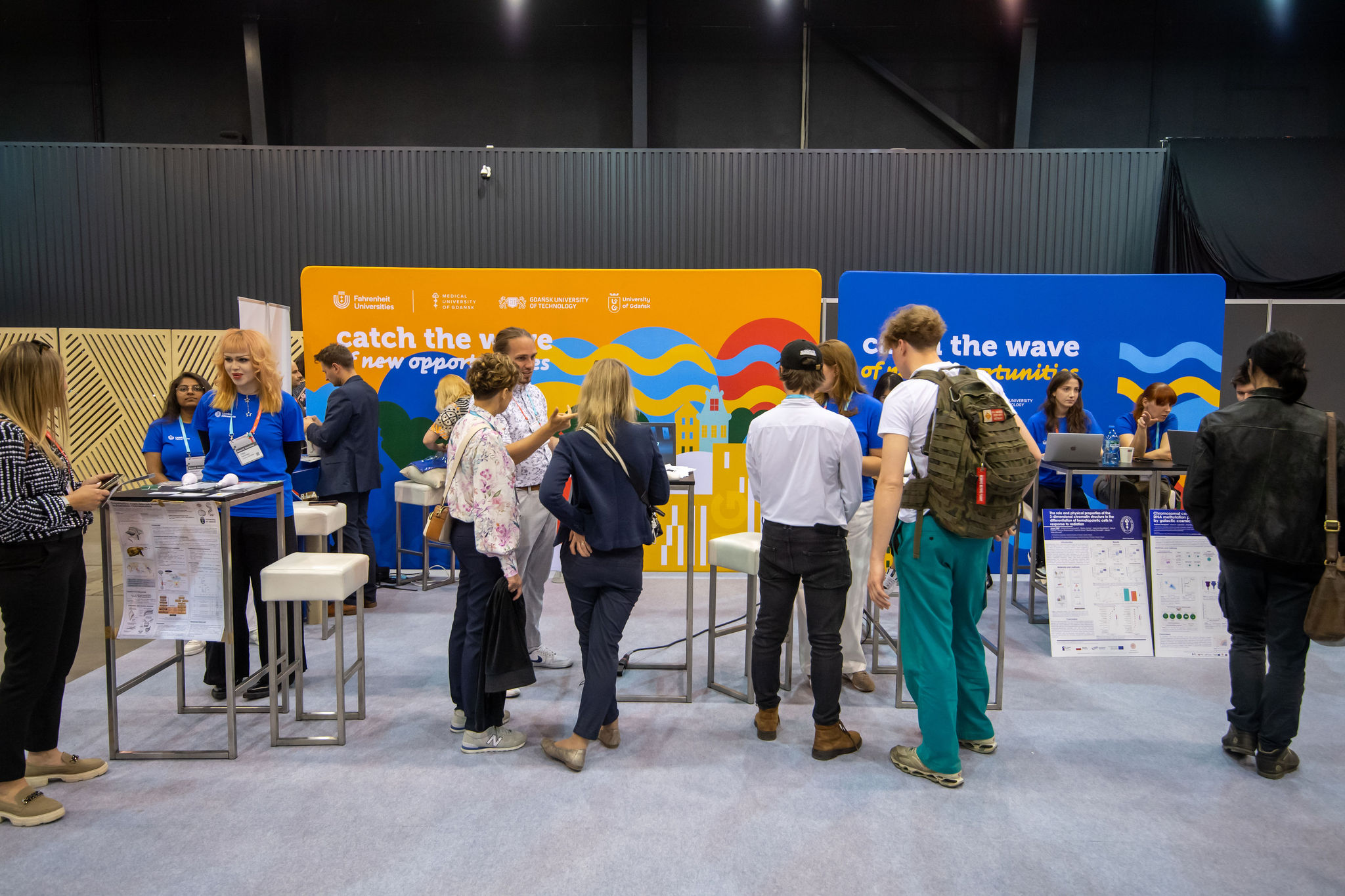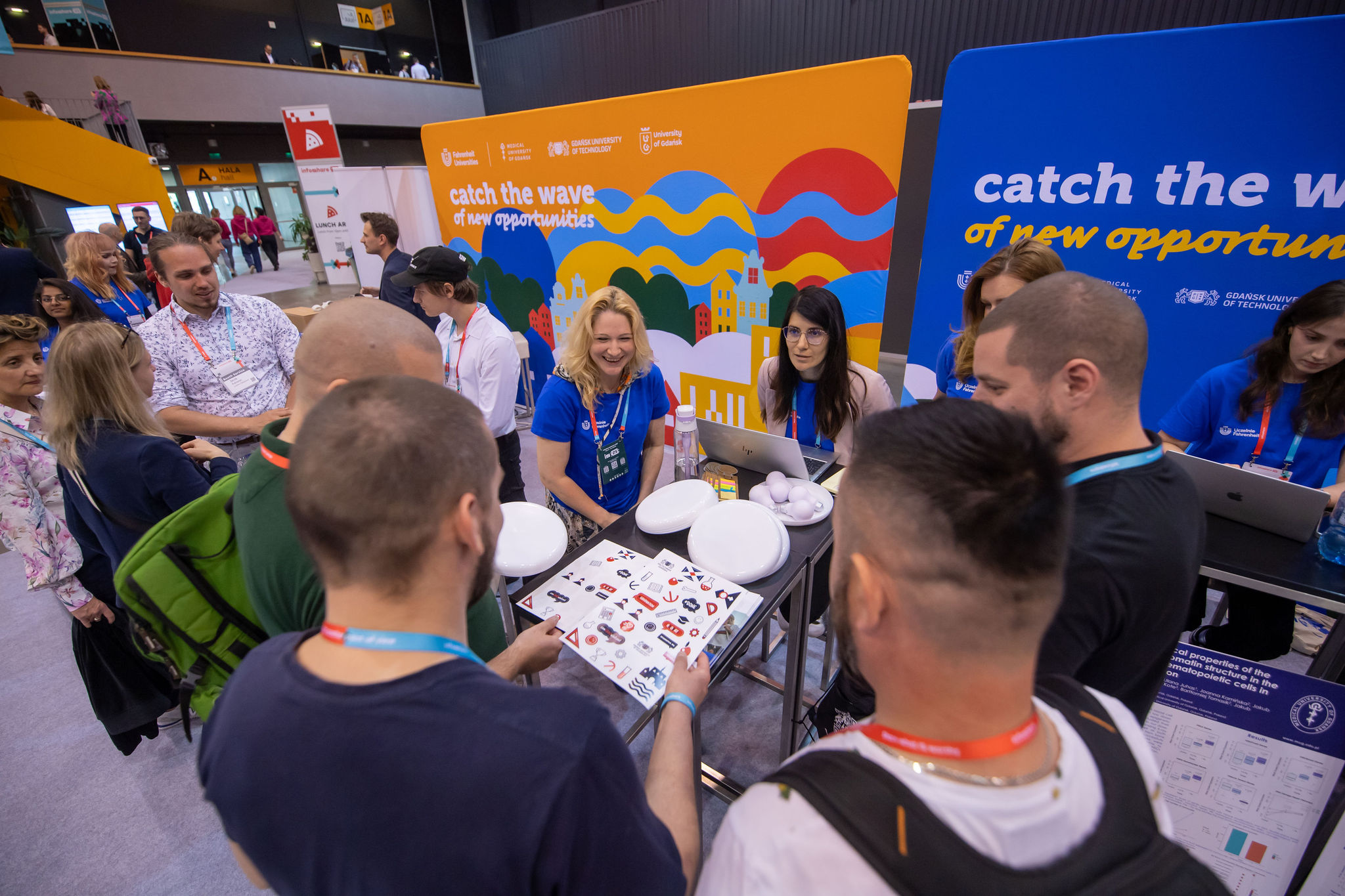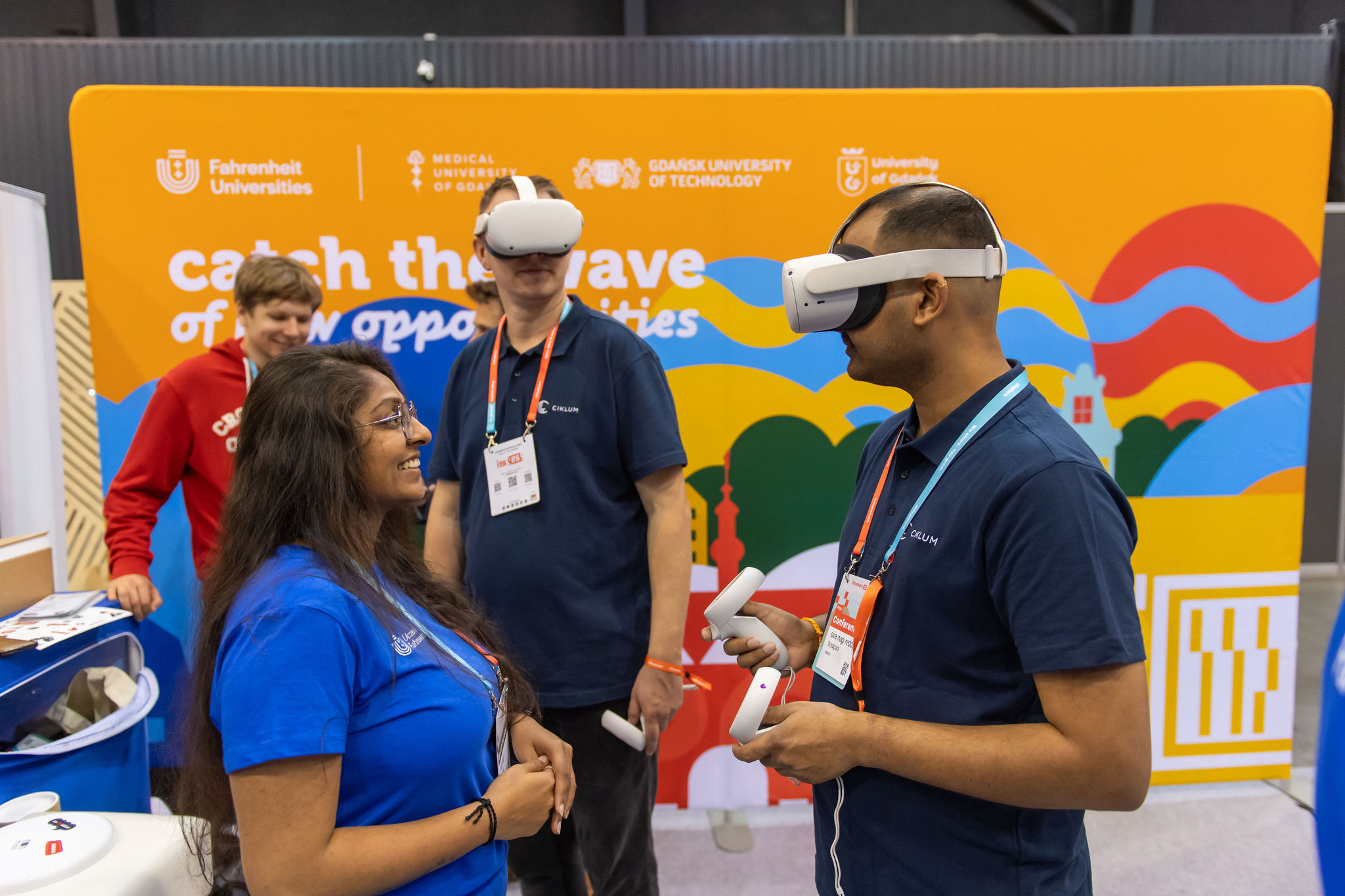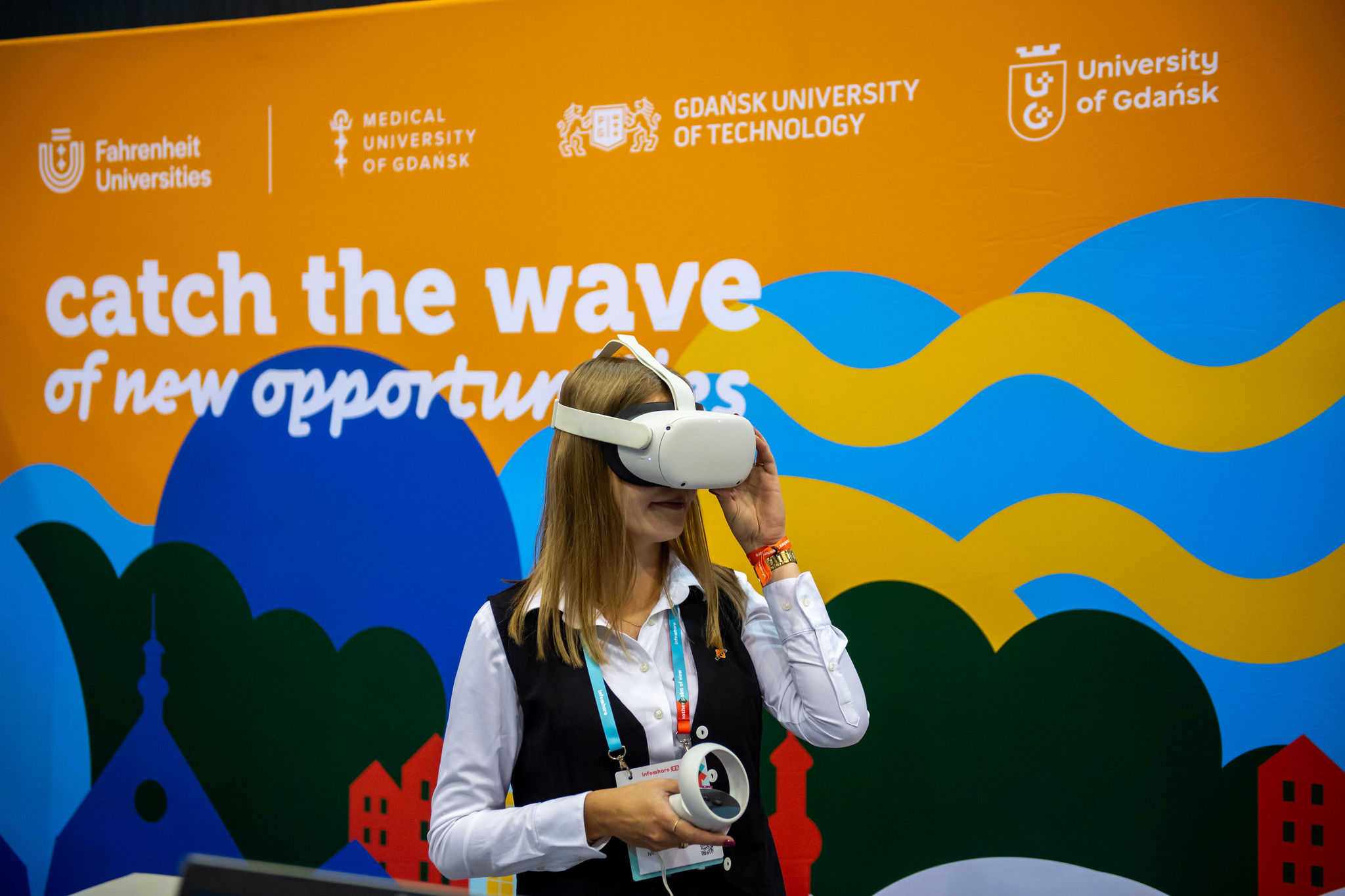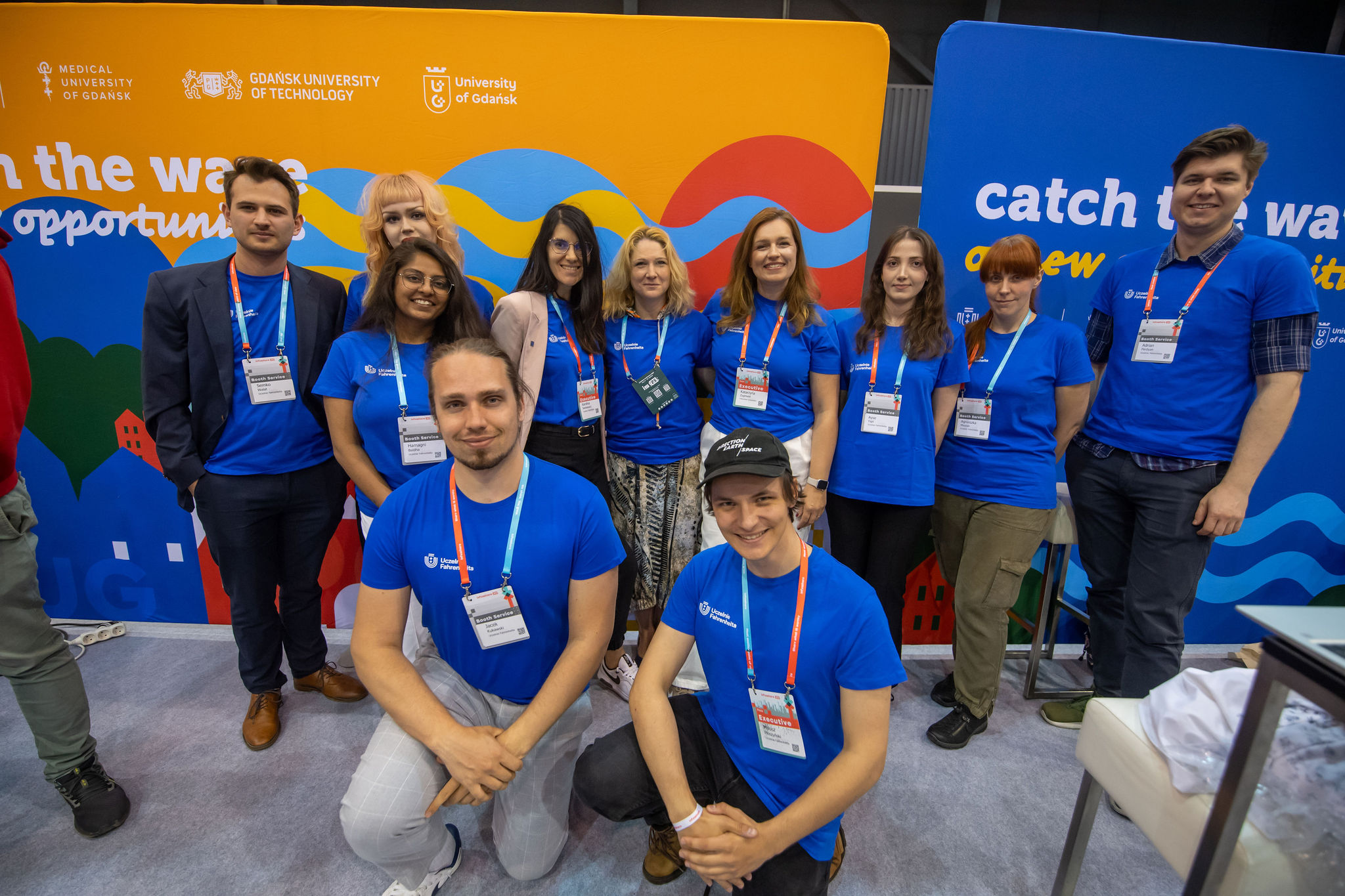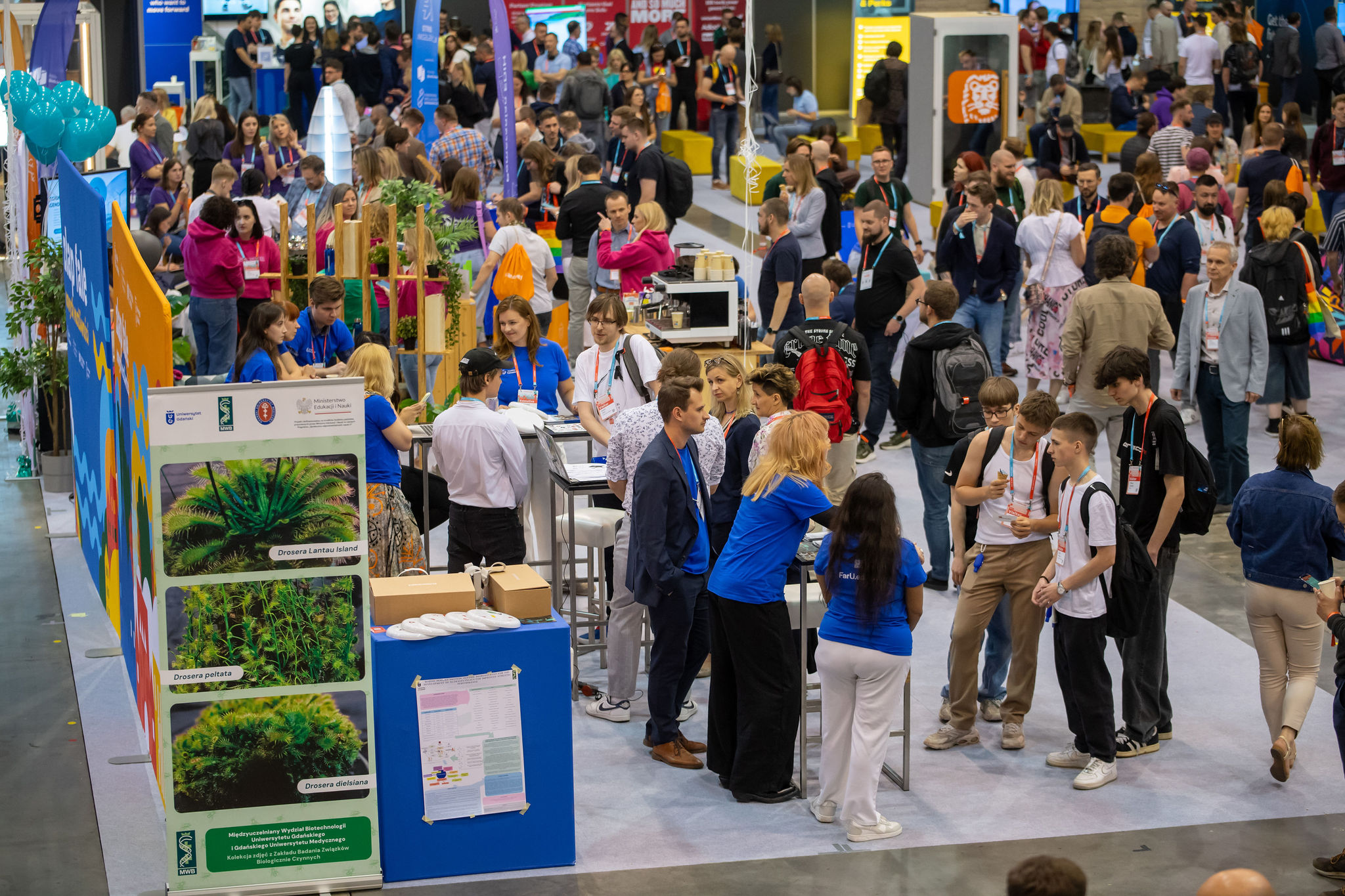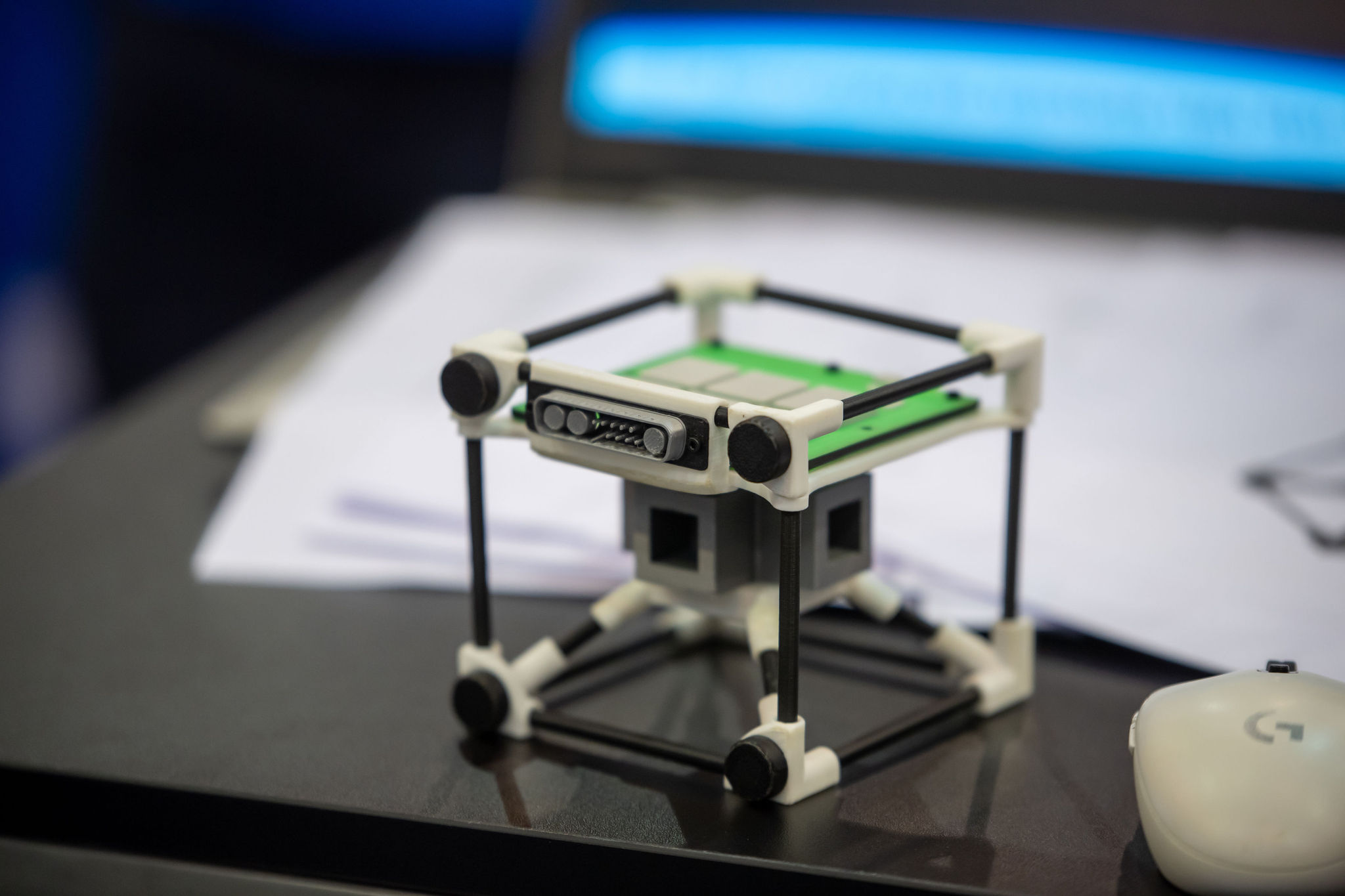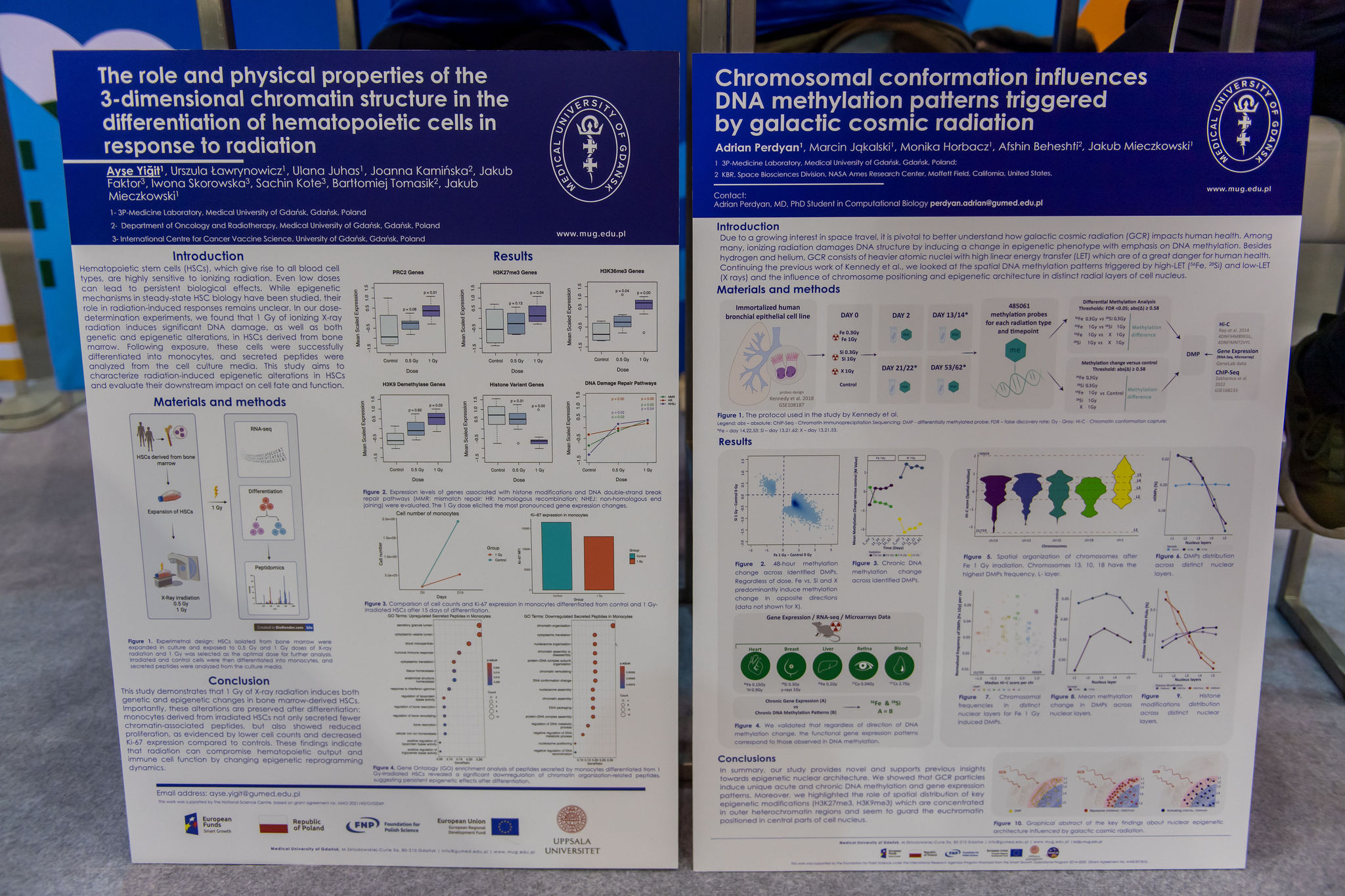Biotechnology, Detectors, and Space Medicine: FarU at Infoshare 2025
This year's Infoshare conference was accompanied by the EU Space Days, which gave us the opportunity to present a project involving an international space station and examples of research influencing space medicine. Attendees also had the chance to experience VR technology, allowing them to explore the Oceanograf research vessel.
Thanks to an invitation from investGDA, Gdańsk’s major universities can present their projects each year at Infoshare — a prestigious technology conference in Central and Eastern Europe. Activities at the Fahrenheit Universities’ booth were organised by the Astrophysics Scientific Circle of Gdańsk University of Technology, the Intercollegiate Faculty of Biotechnology of the University of Gdańsk and the Medical University of Gdańsk (GUMed), and the International Research Agenda.
Research in Space
Due to the simultaneous hosting of EU Space Days, the universities aimed to highlight some of their space-related initiatives. A team from the Medical University of Gdańsk shared research on the effects of cosmic and ultraviolet radiation on the human epigenome — the DNA structure within the cell nucleus.
“What’s innovative is that, in addition to standard gene expression analysis, we’re examining the spatial structure of DNA — looking at how DNA changes in 3D,” explained Adrian Perdyan, adding: “Importantly, we believe that with epigenetic drugs, we might be able to modify histone modifications, which could have preventive applications. This could potentially lower the risk before astronauts embark on missions.”
From the same research group, Ayse Yigit presented findings from a 3-year-long project assessing the impact of radiation on highly specialised hematopoietic stem cells, which can undergo lasting biological changes even from low doses of radiation.
Meanwhile, students from Gdańsk University of Technology showcased their project ZIGGY — a multi-axis X-ray radiation detector with applications ranging from shielding analysis to space navigation. The team entered the Direction Space competition, which aimed to send experiments to the International Space Station.
“This would be the first step in discovering whether orientation using X-ray radiation is possible with a small detector,” said Miłosz Płoszyński, project leader. “We’re currently exploring ways to apply this in commercial satellites.”
Research on the Baltic Sea
The Fahrenheit Universities’ booth didn’t focus solely on space. Conference participants also learned about the Marine Biotechnology program at the University of Gdańsk, which explores how marine natural resources can be biotechnologically utilised. Thanks to VR technology, attendees could experience fieldwork conditions aboard Oceanograf — the most advanced research vessel in the Baltic Sea region.
“We’re presenting what our program is about, and also compounds of marine origin that could be used in medicine or dietary supplements,” said Semko Walat, a Marine Technology student at UG.
Over the course of two days, dozens of people learned about the Fahrenheit Universities Association and the potential of its member institutions.
Special thanks for their engagement go to:
- From the Medical University of Gdańsk: Prof. GUMed, dr. hab. Jakub Mieczkowski, Agnieszka Misztak, Adrian Perdyan, Ayse Yigit
- From Gdańsk University of Technology: Miłosz Płoszyński, Jacek Kukawski
- From the University of Gdańsk: Dorota Pomorska MD, PhD Eng., Olga Kamińska, Semko Walat, Hamagni Baldha, Sophia Piekarska
fot. Gregmar

